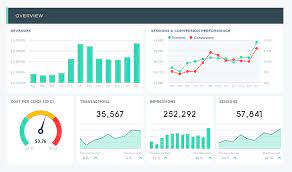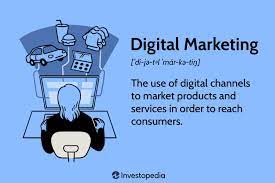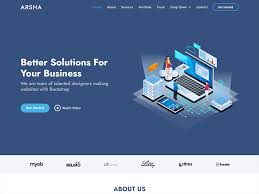Unlocking the Potential of Local Search Marketing: A Guide for UK Businesses
The Power of Local Search Marketing
Local search marketing has become an essential strategy for businesses looking to attract customers in their local area. With the increasing use of mobile devices and voice search, consumers are turning to search engines to find products and services near them. This presents a significant opportunity for businesses to capitalise on local search marketing to drive foot traffic and increase sales.
Benefits of Local Search Marketing
One of the key benefits of local search marketing is increased visibility. By optimising your online presence for local searches, your business is more likely to appear in relevant search results when potential customers are looking for products or services in your area. This visibility not only helps attract new customers but also enhances brand awareness within the local community.
Local search marketing also improves customer engagement. When users find your business listing in local search results, they are more likely to visit your website or storefront, resulting in higher conversion rates. By providing accurate and up-to-date information about your business, such as address, phone number, and operating hours, you make it easier for customers to contact you or visit your premises.
Strategies for Local Search Marketing
To succeed in local search marketing, businesses need to implement effective strategies that target their local audience. This includes:
- Optimising Google My Business: Claiming and verifying your Google My Business listing ensures that your business information appears accurately on Google Maps and Search results.
- Localised Content: Creating content that is tailored to your local audience helps improve relevance and visibility in local searches.
- Online Reviews: Encouraging satisfied customers to leave positive reviews can boost credibility and trustworthiness, leading to increased conversions.
- Citations and Backlinks: Building citations (mentions of your business name) and backlinks from reputable sources can improve your website’s authority and ranking in local searches.
Conclusion
In conclusion, local search marketing is a powerful tool for businesses seeking to connect with nearby customers and drive sales. By implementing targeted strategies that enhance visibility, engagement, and credibility within the local community, businesses can reap the benefits of increased foot traffic and revenue. Embracing local search marketing not only strengthens your online presence but also establishes a strong connection with customers right at your doorstep.
Essential FAQs on Local Search Marketing for Businesses
- What is local search marketing?
- Why is local search marketing important for businesses?
- How can businesses improve their visibility in local searches?
- What are the key benefits of focusing on local SEO?
- What role does Google My Business play in local search marketing?
- How can online reviews impact a business’s performance in local searches?
What is local search marketing?
Local search marketing refers to the strategic practice of optimising a business’s online presence to attract customers within a specific geographic area. It involves utilising various digital marketing techniques to ensure that the business appears prominently in local search results when potential customers are looking for products or services nearby. By focusing on local search marketing, businesses can enhance their visibility, engage with local customers effectively, and drive foot traffic to their physical locations. This targeted approach helps businesses connect with their local community, build brand awareness, and ultimately boost sales within their immediate vicinity.
Why is local search marketing important for businesses?
Local search marketing is crucial for businesses due to its ability to target and attract potential customers in the immediate vicinity. By optimising online presence for local searches, businesses increase visibility to individuals actively seeking products or services within their geographic area. This heightened visibility not only drives foot traffic and boosts sales but also enhances brand recognition within the local community. Moreover, local search marketing fosters customer engagement by providing accurate business information, making it easier for interested consumers to connect with the business either online or in person. Ultimately, embracing local search marketing empowers businesses to establish a strong foothold in their local market and forge meaningful connections with nearby customers.
How can businesses improve their visibility in local searches?
To enhance their visibility in local searches, businesses can employ several strategies. Firstly, claiming and optimising their Google My Business listing is crucial, as it ensures accurate information appears in search results and on Google Maps. Creating locally relevant content on their website can also improve visibility, as search engines prioritise content that resonates with the local audience. Encouraging satisfied customers to leave positive reviews and building citations from reputable sources can boost credibility and trustworthiness, ultimately improving the business’s ranking in local searches. By implementing these strategies effectively, businesses can significantly enhance their visibility in local searches and attract more customers to their doorstep.
What are the key benefits of focusing on local SEO?
Focusing on local SEO offers a multitude of benefits for businesses aiming to enhance their online presence within a specific geographic area. By prioritising local SEO strategies, businesses can significantly improve their visibility in local search results, making it easier for potential customers to find them when searching for products or services nearby. This increased visibility not only drives more targeted traffic to their website but also boosts brand awareness within the local community. Moreover, by optimising for local search, businesses can engage with a more relevant audience, leading to higher conversion rates and ultimately driving foot traffic to their physical locations. Overall, the key benefits of focusing on local SEO include improved visibility, enhanced customer engagement, and increased opportunities for driving sales within the local market.
What role does Google My Business play in local search marketing?
Google My Business plays a crucial role in local search marketing by providing businesses with a powerful tool to enhance their online visibility within their local community. By claiming and optimising their Google My Business listing, businesses can ensure that accurate information about their location, contact details, operating hours, and services is displayed prominently in Google Search and Maps results. This not only helps potential customers find and contact the business easily but also improves the business’s chances of appearing in local search queries. Additionally, Google My Business allows businesses to interact with customers through reviews, posts, and messaging, further strengthening their online presence and credibility in the local market. Overall, leveraging Google My Business effectively is essential for businesses looking to attract local customers and boost their visibility in local search results.
How can online reviews impact a business’s performance in local searches?
Online reviews play a crucial role in influencing a business’s performance in local searches. Positive reviews not only enhance a business’s credibility and reputation but also signal to search engines that the business is trustworthy and reliable. Search engines like Google consider online reviews as a ranking factor in local search results, meaning that businesses with higher ratings and more positive reviews are likely to appear higher in search listings. Additionally, online reviews provide valuable feedback for potential customers, influencing their decision-making process and ultimately driving more traffic to the business. In summary, online reviews can significantly impact a business’s visibility, click-through rates, and overall success in local searches.








